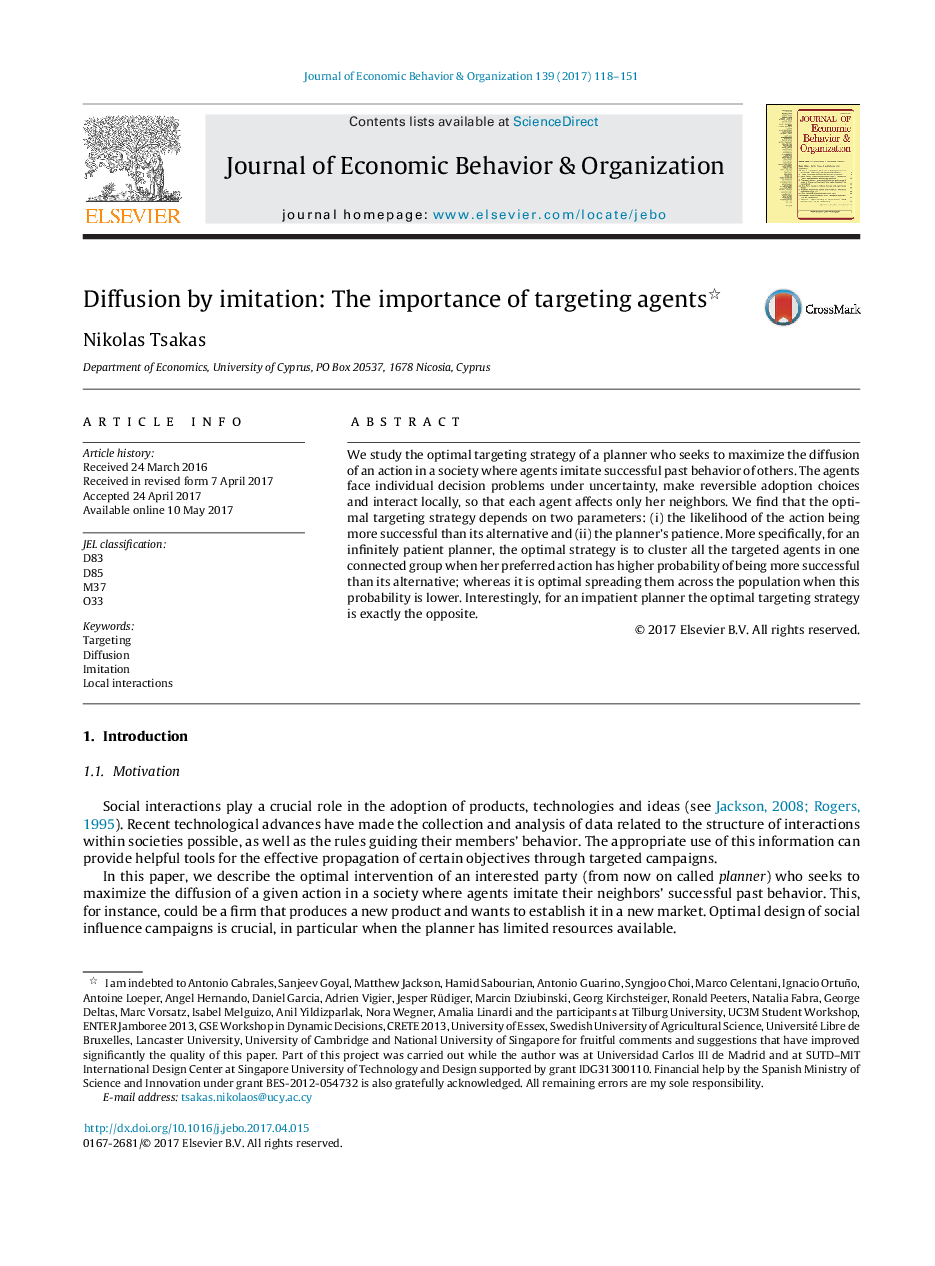| Article ID | Journal | Published Year | Pages | File Type |
|---|---|---|---|---|
| 5034523 | Journal of Economic Behavior & Organization | 2017 | 34 Pages |
Abstract
We study the optimal targeting strategy of a planner who seeks to maximize the diffusion of an action in a society where agents imitate successful past behavior of others. The agents face individual decision problems under uncertainty, make reversible adoption choices and interact locally, so that each agent affects only her neighbors. We find that the optimal targeting strategy depends on two parameters: (i) the likelihood of the action being more successful than its alternative and (ii) the planner's patience. More specifically, for an infinitely patient planner, the optimal strategy is to cluster all the targeted agents in one connected group when her preferred action has higher probability of being more successful than its alternative; whereas it is optimal spreading them across the population when this probability is lower. Interestingly, for an impatient planner the optimal targeting strategy is exactly the opposite.
Related Topics
Social Sciences and Humanities
Economics, Econometrics and Finance
Economics and Econometrics
Authors
Nikolas Tsakas,
